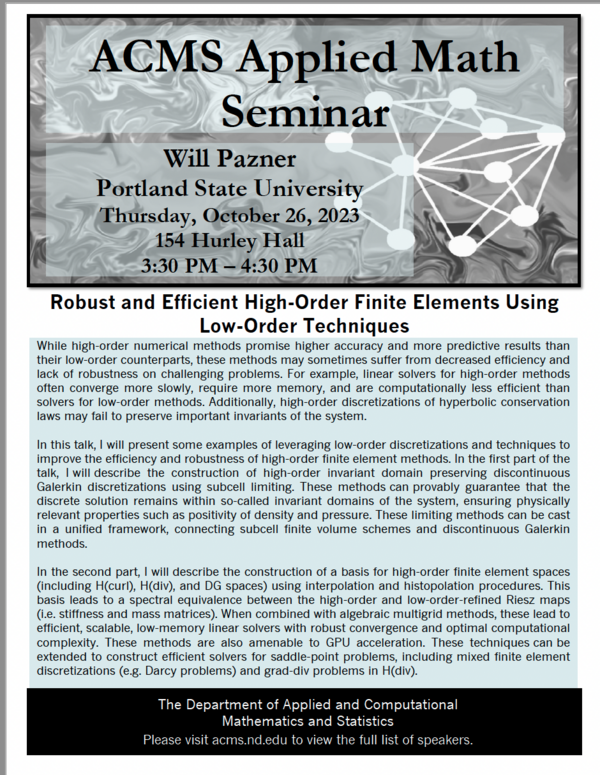Will Pazner
Portland State University
Thursday, October 26, 202
154 Hurley Hall
3:30 pm - 4:30 pm
Title: Robust and Efficient High-Order Finite Elements Using Low-Order Techniques
Abstract: While high-order numerical methods promise higher accuracy and more predictive results than their low-order counterparts, these methods may sometimes suffer from decreased efficiency and lack of robustness on challenging problems. For example, linear solvers for high-order methods often converge more slowly, require more memory, and are computationally less efficient than solvers for low-order methods. Additionally, high-order discretizations of hyperbolic conservation laws may fail to preserve important invariants of the system.
In this talk, I will present some examples of leveraging low-order discretizations and techniques to improve the efficiency and robustness of high-order finite element methods. In the first part of the talk, I will describe the construction of high-order invariant domain preserving discontinuous Galerkin discretizations using subcell limiting. These methods can provably guarantee that the discrete solution remains within so-called invariant domains of the system, ensuring physically relevant properties such as positivity of density and pressure. These limiting methods can be cast in a unified framework, connecting subcell finite volume schemes and discontinuous Galerkin methods.
In the second part, I will describe the construction of a basis for high-order finite element spaces (including H(curl), H(div), and DG spaces) using interpolation and histopolation procedures. This basis leads to a spectral equivalence between the high-order and low-order-refined Riesz maps (i.e. stiffness and mass matrices). When combined with algebraic multigrid methods, these lead to efficient, scalable, low-memory linear solvers with robust convergence and optimal computational complexity. These methods are also amenable to GPU acceleration. These techniques can be extended to construct efficient solvers for saddle-point problems, including mixed finite element discretizations (e.g. Darcy problems) and grad-div problems in H(div).
